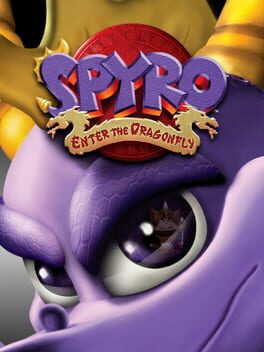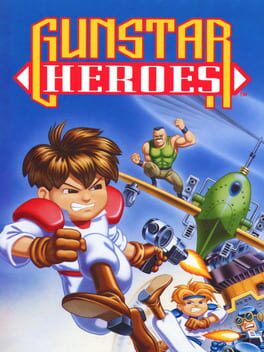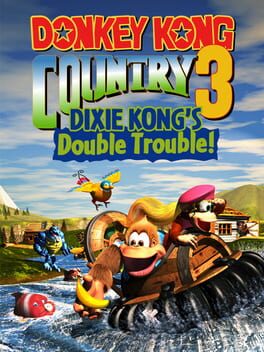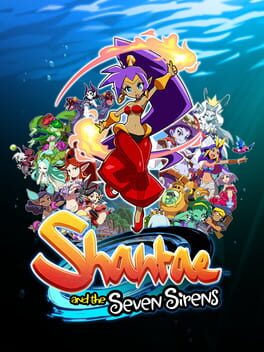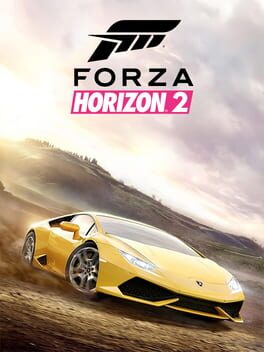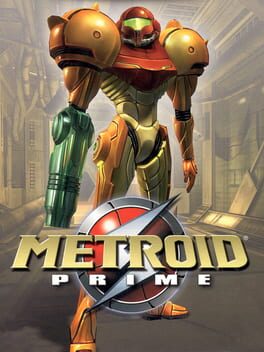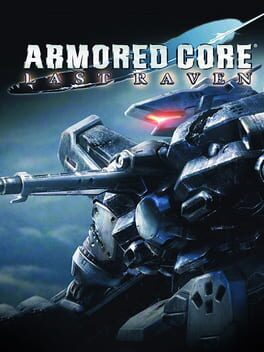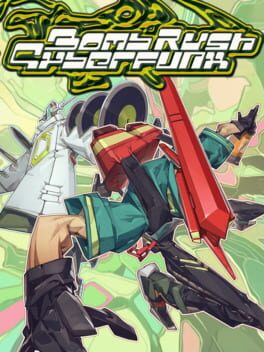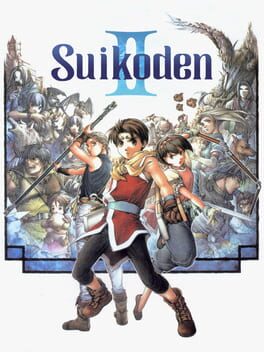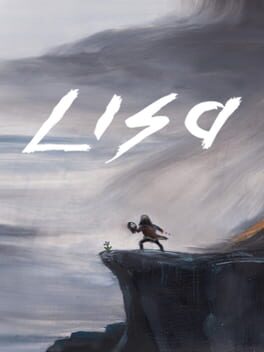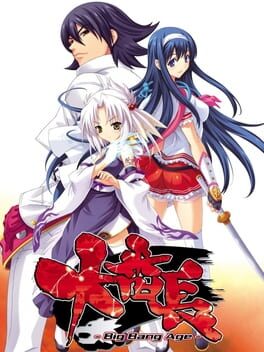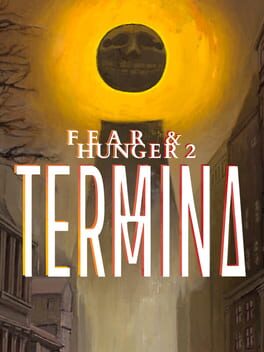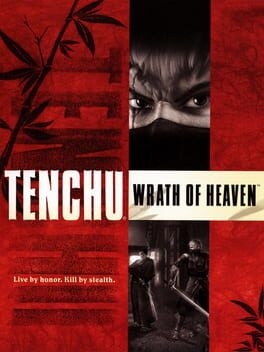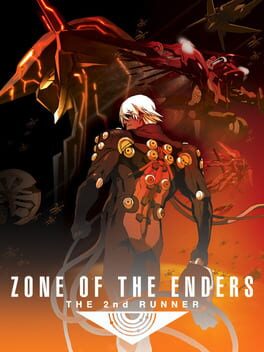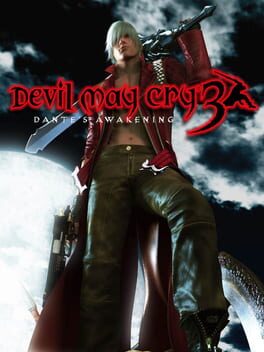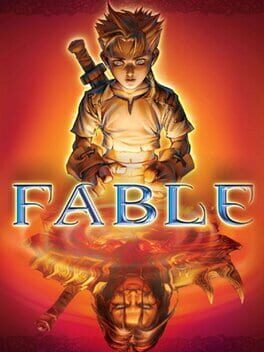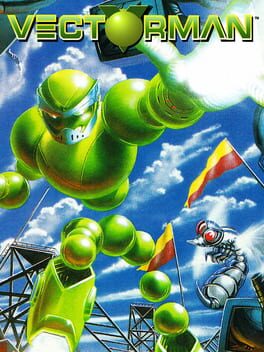Catsopalle
52 reviews liked by Catsopalle
Resident Evil 6
2012
Final Fantasy VI
1994
I've always had a very controversial relationship with Final Fantasy, especially with Final Fantasy fans which might be one of the dumbest fandoms I've ever had the disgrace to interact with; however, I also managed to know a few people who are huge fans of this colossal series and they really belong to some of my closest friends to date.
The thing that I respected the most is that, even if I managed to not touch a single game of this franchise for literally years and started to re-explore the genre with Atlus games, they still managed not to yell in my ear to try FF again and genuinely waited for me to try to get into it again.
Now, I did not start again with this one, but with FFIV DS, which I found it to be...nice, but I think I should try the 2D version next time, eventually I'll talk more about it when I'll review that game.
Now, onto FFVI: I always take my sweet time to beat a JRPG, especially because they tend to be very long and with lots of different scenarios to digest before moving to the next one, yet I manged to beat this whole game in just 4 days.
4 days. Not only it never happened with a Final Fantasy, not only with a JRPG, but I barely remember whenever it happened with other games with the same length.
By having already played VII and X, which I think to be great games, I always thought Final Fantasy is a very great franchise that does not fit with me, really. It's like "yeah I perfectly understand its greatness" and it's cool but not something I'd go nuts over it.
But then I witnessed Sabin doing a suplex to a train.
Even though the plot itself might have few hiccups in its writing, I think the characters are some of the best I have ever seen; Locke might be my favourite FF character ever, with Celes and Terra being close seconds. I also think Kefka is an insanely great villain; whenever people point out he might be "weak" in terms of writing, I always imagine it's because people think of chaotic evil villains as "shallow" when it's actually incredibly hard not only to make a villain like that believable, but also an embodiment of the theme of nihilism and how that clashes with the indomitable human spirit who just manages to find a way to find meaningfulness in nothingless. It's not just Kefka being a silly little psycho, it's literally how he embodies what you know you're struggling against, but in spite of that you can still find an answer.
But what elevates this game so much to me it's the fact a lot of very impactful and important scenes are actually optional and play depending on your interest of different characters: you might never know what sad story lies in one of the characters you never gave a damn about and the game won't try to shove in your troath anything to prove otherwise, but if you change your mind you'll find out. And it will hurt like a bitch.
Final Fantasy VI is an absolute masterclass of character writing and storytelling that gains both actively and retroactively, with some of the highest moments I've ever experienced in a videogame.
Fuck the Colosseum and the Cultists' Tower though those fucking suck lotta dick.
The thing that I respected the most is that, even if I managed to not touch a single game of this franchise for literally years and started to re-explore the genre with Atlus games, they still managed not to yell in my ear to try FF again and genuinely waited for me to try to get into it again.
Now, I did not start again with this one, but with FFIV DS, which I found it to be...nice, but I think I should try the 2D version next time, eventually I'll talk more about it when I'll review that game.
Now, onto FFVI: I always take my sweet time to beat a JRPG, especially because they tend to be very long and with lots of different scenarios to digest before moving to the next one, yet I manged to beat this whole game in just 4 days.
4 days. Not only it never happened with a Final Fantasy, not only with a JRPG, but I barely remember whenever it happened with other games with the same length.
By having already played VII and X, which I think to be great games, I always thought Final Fantasy is a very great franchise that does not fit with me, really. It's like "yeah I perfectly understand its greatness" and it's cool but not something I'd go nuts over it.
But then I witnessed Sabin doing a suplex to a train.
Even though the plot itself might have few hiccups in its writing, I think the characters are some of the best I have ever seen; Locke might be my favourite FF character ever, with Celes and Terra being close seconds. I also think Kefka is an insanely great villain; whenever people point out he might be "weak" in terms of writing, I always imagine it's because people think of chaotic evil villains as "shallow" when it's actually incredibly hard not only to make a villain like that believable, but also an embodiment of the theme of nihilism and how that clashes with the indomitable human spirit who just manages to find a way to find meaningfulness in nothingless. It's not just Kefka being a silly little psycho, it's literally how he embodies what you know you're struggling against, but in spite of that you can still find an answer.
But what elevates this game so much to me it's the fact a lot of very impactful and important scenes are actually optional and play depending on your interest of different characters: you might never know what sad story lies in one of the characters you never gave a damn about and the game won't try to shove in your troath anything to prove otherwise, but if you change your mind you'll find out. And it will hurt like a bitch.
Final Fantasy VI is an absolute masterclass of character writing and storytelling that gains both actively and retroactively, with some of the highest moments I've ever experienced in a videogame.
Fuck the Colosseum and the Cultists' Tower though those fucking suck lotta dick.
Dragon's Dogma II
2024
It's upmost rare to stumble upon something so obnoxiously obtuse in a time of excessive signposting and way-finding, even more when such stubbornness is perfectly coherent with all the aspects of its own design.
Dragon's Dogma II is exactly that - unwilling to accommodate its structure to the modern demands, unapologetically stuck in its own idea of commitment and restrains, and unfathomably fascinating when all those things come together.
Fortunately, they all work together way better in this sequel than its original, and that's because of the egregious amount of polishing that the weakest factors of Dragon's Dogma got. The open world got by far the best treatment, delightfully explorable, even with climbing not being an option in the game, which restricts you to jumping and platforming. This alone marks an unquantifiable step forward from the original. Fetch quests are gone for good - they're replaced by more wisely paced events which you may stumble upon in the world - or may not. Escort quests are too part of a more authentic approach to the game's role-playing features. Main quests and sides quests - they are all true to the elegance of a better written world. Time-gating is here too - featured in less quests, but more involved, more cleverly designed, better written, and overall way more remarkable. One of those, which you may access to even in the most early stages of the game, involves you fighting one of the most fearsome bosses of the game. You may get onboard, do an hike comparable to the original's griffin run, get to the quest, and ultimately fail it. That still counts as completed.
Failure as a state is one of the many accepted outcomes in Dragon's Dogma II. It perfectly fits how much this game is willing to make you miss stuff, purposely hiding chunks of (in corporate speak) content, where other games would basically bend to you and pray "please, experience this thing and extend your playtime", even if at the cost of immersion. DDII is not expecting you to do so - it's simply designed this way. It does not care about you, in that regard. This game's indifference to the player's concerns befalls in every aspect of its journey. The best way to experience it, then, is to live it without fear.
Such is the world you're brought into. One of the first quotes from the game recites how you will come to learn and understand from it - so you might be able to banish all the evil there is in. Nothing was more true than that: explore, learn its ins and outs, understand its opportunities and its threats, find new paths, discover new places, and then backtrack your steps. The reality of transforming a journey from the discovery of the unknown to the sheer mastery of its terrain and what lies ahead only by the knowledge gained its unique to this game - thanks only to how much it conceals itself from the player. There's not bar, value, number or anything that may encompass this feel - it's all about you experiencing things.
Here the real journey in the world of DDII starts. It begins when you stop thinking about the game as checklist in order to experience the game as it is, when you decide to let the flow of things guide you, even if just a bit. You still have the agency you had in the original, but the deepened combat system, the physicality of it, the rag-doll, the environmental interactions, the AI, the game's structure, the depth of the quests and their outcomes - everything is tailor-made to suit curiosity and resourcefulness before all. The consequences of basically everything you may stumble upon are so much deeply rooted in your actions that you may as well recount your findings to a friend playing the game - chances are, he's gonna tell you a whole different story.
Story which is not only a far better suited tale for a game of the likes of DDII, but it's a blank slate of sorts for you ingenuity to manifest. Chosen one yes, but no one gives a shit about it. Hell, some (if not most) even despise you because of that. You'll have the time and the chances to build your affinity with other characters, get to know others, gift them presents, follow them in enormous and entirely missable quest-lines and more. The involvement and commitment you see in every aspect of the game does not fall short here. Instead, some of the strongest story beats and choices you're going to come across are not outspokenly announced by the game. DDII simply requires your attention on most of the times in order to make sense of things. On that, if you come from the original you surely have the upper-hand, but then again - I do, and yet I couldn't keep track of the numbers of times I was left surprised by the game's machinations.
On that regard, it's almost eye-watering how much DDII respects not only your time (even with the commitment required to only enable fast travel) but also your dedication to the game's world and its systems: it knows the player's not here to be hand-holded or to be scolded, but to witness the sheer audacity by which this game is dedicated, obsessively so, to its involvement in things. Keep in mind that there's been an egregious UX pass from the previous but, truth to be told, the updates in accessibility did not detriment the game design. Crazy, right?
On that note, challenge is not born out of the gameplay itself - that's not the point. Apart from the initial hours, the plateau of DDII's dynamic difficulty is quickly reached - and its hardships soon become a memory, apart from some specific outliers. The truest of the test to the player resides in how he undertakes the game's structure. Will he engage the game to the fullest of its extent, or will he fall behind because of the game's unwillingness to please every single soul in this world?
True sovereignty of the world of DDII lies in using to its maximum extent every system that is given in game. You may come to a point when fast travel becomes not only a must - but also cheap and, in that regard, sustainable, even with a lot of upfront expenses to merchants. You can always sell stuff around - and there are small glimpses of an economy in the game, which you may use to your own advantage, such as some goods available only in specific countries of the game's world. You will find out how enhancing an item is not a do-and-done thing, but something with more depth and complexity than before. Camping starts as a luxury, for only to become one of the ways to maximize buffs for the upcoming boss fights. Nights start frightening - and then they become an opportunity to collect things you won't find elsewhere. Same goes for dungeons and bosses. You may find some items only if you visit such dungeons, and some monsters become a treat for your business as an Arisen. One of the vocations being literally the ultimate show of mastery of all of the move-sets of the game, alongside their abilities and spells. It really feels like a power climb of sorts, but in the best way possible. You're not asked to do so: you're doing this out of your own volition. On that, again - a game so coherent in and out of itself.
All of this ultimately became clear as day as soon as you stumble in the end-game. The original game holds nothing compared to this, and the way it's graciously intertwined with the game's world and narrative is just - chef kiss, really. All of this happens while the game unravels itself in the boldest way possible and, dare I say, unmatched even by the likes of other games which tried that thing before. All the systems you've got used to get turned around, and all the items which were collecting dust in your inventory have to be used, and extensively so. As if it wasn't enough, a spectacle which by itself alone eclipses the original Dragon's Dogma final stretch reveals itself right before your eyes. It's remarkable how much this game resonates and communicates with the original and its expansion in a way that, in my opinion, almost requires experiencing the full original game in order to truly taste the accomplishments performed here. I cannot delve more on this in fear of spoilers, but you won't be disappointed.
Some minor criticism can be done regarding the balancing of the vocations, with some really strong exceptions: nothing new if you come from the original game. Other minor things, truly nitpicks from my side, are the more streamlined systems (like the layered armor and dragon-forging) which are more straightforward in expense of... I dunno, flavor? The enemy variety is just a tad better than the original game, with some additions coming straight from Dragon's Dogma Dark Arisen. Some iconic monsters of the original game are, instead, inexplicably missing from the sequel: they do have their replacement, though, in the form of new bosses. Dungeons are way more than before, some of these even bigger than before, but less remarkable from the ones of the first game, level-design and environment art wise. The music in the sequel is missing the electric guitar from the original. Again, I'm really trying to be a pain in the ass to an otherwise phenomenal game.
What would be an unadulterated experience is sadly only stained by micro-transactions, which serve no purpose and have no place here, and the performance, which is still bearable, but subpar in some specific moments of the game. I cannot stress enough how those things are, in my point of view, not detrimental at all to the game's experience. With or without those - the game's still here, and it'll have the same things which will make you either fall in love with it or absolutely despise it. This remains unchanged from the previous iteration of the series - since this game is basically an exponential increase of all the things you adored and loathed of the original. Take it or leave it, really.
In the end it truly is, and I cannot understate it, a case of you get exactly what you're looking for in this game. The more you delve into the game's intricacies, the more you will be rewarded, in a way no other game can achieve. Do take your time with this one - you'll be thanking your past self for that.
Dragon's Dogma II was never about just its gameplay, or its stubbornness in the game systems, or its loose writing - it was always about everything coming all together. The single writings on the wall may encompass only some the strongest or weakest sides of the project, but it's when they become whole that its magic is finally revealed. It's about the war stories of your battles, the tales of your journey from a place to another. It's the unexpected, the unpredictable, the unaccounted for.
And all of that is unique - remarkably so. You'll never find anything like this in any other game for the time being.
Must-Play.
Dragon's Dogma II is exactly that - unwilling to accommodate its structure to the modern demands, unapologetically stuck in its own idea of commitment and restrains, and unfathomably fascinating when all those things come together.
Fortunately, they all work together way better in this sequel than its original, and that's because of the egregious amount of polishing that the weakest factors of Dragon's Dogma got. The open world got by far the best treatment, delightfully explorable, even with climbing not being an option in the game, which restricts you to jumping and platforming. This alone marks an unquantifiable step forward from the original. Fetch quests are gone for good - they're replaced by more wisely paced events which you may stumble upon in the world - or may not. Escort quests are too part of a more authentic approach to the game's role-playing features. Main quests and sides quests - they are all true to the elegance of a better written world. Time-gating is here too - featured in less quests, but more involved, more cleverly designed, better written, and overall way more remarkable. One of those, which you may access to even in the most early stages of the game, involves you fighting one of the most fearsome bosses of the game. You may get onboard, do an hike comparable to the original's griffin run, get to the quest, and ultimately fail it. That still counts as completed.
Failure as a state is one of the many accepted outcomes in Dragon's Dogma II. It perfectly fits how much this game is willing to make you miss stuff, purposely hiding chunks of (in corporate speak) content, where other games would basically bend to you and pray "please, experience this thing and extend your playtime", even if at the cost of immersion. DDII is not expecting you to do so - it's simply designed this way. It does not care about you, in that regard. This game's indifference to the player's concerns befalls in every aspect of its journey. The best way to experience it, then, is to live it without fear.
Such is the world you're brought into. One of the first quotes from the game recites how you will come to learn and understand from it - so you might be able to banish all the evil there is in. Nothing was more true than that: explore, learn its ins and outs, understand its opportunities and its threats, find new paths, discover new places, and then backtrack your steps. The reality of transforming a journey from the discovery of the unknown to the sheer mastery of its terrain and what lies ahead only by the knowledge gained its unique to this game - thanks only to how much it conceals itself from the player. There's not bar, value, number or anything that may encompass this feel - it's all about you experiencing things.
Here the real journey in the world of DDII starts. It begins when you stop thinking about the game as checklist in order to experience the game as it is, when you decide to let the flow of things guide you, even if just a bit. You still have the agency you had in the original, but the deepened combat system, the physicality of it, the rag-doll, the environmental interactions, the AI, the game's structure, the depth of the quests and their outcomes - everything is tailor-made to suit curiosity and resourcefulness before all. The consequences of basically everything you may stumble upon are so much deeply rooted in your actions that you may as well recount your findings to a friend playing the game - chances are, he's gonna tell you a whole different story.
Story which is not only a far better suited tale for a game of the likes of DDII, but it's a blank slate of sorts for you ingenuity to manifest. Chosen one yes, but no one gives a shit about it. Hell, some (if not most) even despise you because of that. You'll have the time and the chances to build your affinity with other characters, get to know others, gift them presents, follow them in enormous and entirely missable quest-lines and more. The involvement and commitment you see in every aspect of the game does not fall short here. Instead, some of the strongest story beats and choices you're going to come across are not outspokenly announced by the game. DDII simply requires your attention on most of the times in order to make sense of things. On that, if you come from the original you surely have the upper-hand, but then again - I do, and yet I couldn't keep track of the numbers of times I was left surprised by the game's machinations.
On that regard, it's almost eye-watering how much DDII respects not only your time (even with the commitment required to only enable fast travel) but also your dedication to the game's world and its systems: it knows the player's not here to be hand-holded or to be scolded, but to witness the sheer audacity by which this game is dedicated, obsessively so, to its involvement in things. Keep in mind that there's been an egregious UX pass from the previous but, truth to be told, the updates in accessibility did not detriment the game design. Crazy, right?
On that note, challenge is not born out of the gameplay itself - that's not the point. Apart from the initial hours, the plateau of DDII's dynamic difficulty is quickly reached - and its hardships soon become a memory, apart from some specific outliers. The truest of the test to the player resides in how he undertakes the game's structure. Will he engage the game to the fullest of its extent, or will he fall behind because of the game's unwillingness to please every single soul in this world?
True sovereignty of the world of DDII lies in using to its maximum extent every system that is given in game. You may come to a point when fast travel becomes not only a must - but also cheap and, in that regard, sustainable, even with a lot of upfront expenses to merchants. You can always sell stuff around - and there are small glimpses of an economy in the game, which you may use to your own advantage, such as some goods available only in specific countries of the game's world. You will find out how enhancing an item is not a do-and-done thing, but something with more depth and complexity than before. Camping starts as a luxury, for only to become one of the ways to maximize buffs for the upcoming boss fights. Nights start frightening - and then they become an opportunity to collect things you won't find elsewhere. Same goes for dungeons and bosses. You may find some items only if you visit such dungeons, and some monsters become a treat for your business as an Arisen. One of the vocations being literally the ultimate show of mastery of all of the move-sets of the game, alongside their abilities and spells. It really feels like a power climb of sorts, but in the best way possible. You're not asked to do so: you're doing this out of your own volition. On that, again - a game so coherent in and out of itself.
All of this ultimately became clear as day as soon as you stumble in the end-game. The original game holds nothing compared to this, and the way it's graciously intertwined with the game's world and narrative is just - chef kiss, really. All of this happens while the game unravels itself in the boldest way possible and, dare I say, unmatched even by the likes of other games which tried that thing before. All the systems you've got used to get turned around, and all the items which were collecting dust in your inventory have to be used, and extensively so. As if it wasn't enough, a spectacle which by itself alone eclipses the original Dragon's Dogma final stretch reveals itself right before your eyes. It's remarkable how much this game resonates and communicates with the original and its expansion in a way that, in my opinion, almost requires experiencing the full original game in order to truly taste the accomplishments performed here. I cannot delve more on this in fear of spoilers, but you won't be disappointed.
Some minor criticism can be done regarding the balancing of the vocations, with some really strong exceptions: nothing new if you come from the original game. Other minor things, truly nitpicks from my side, are the more streamlined systems (like the layered armor and dragon-forging) which are more straightforward in expense of... I dunno, flavor? The enemy variety is just a tad better than the original game, with some additions coming straight from Dragon's Dogma Dark Arisen. Some iconic monsters of the original game are, instead, inexplicably missing from the sequel: they do have their replacement, though, in the form of new bosses. Dungeons are way more than before, some of these even bigger than before, but less remarkable from the ones of the first game, level-design and environment art wise. The music in the sequel is missing the electric guitar from the original. Again, I'm really trying to be a pain in the ass to an otherwise phenomenal game.
What would be an unadulterated experience is sadly only stained by micro-transactions, which serve no purpose and have no place here, and the performance, which is still bearable, but subpar in some specific moments of the game. I cannot stress enough how those things are, in my point of view, not detrimental at all to the game's experience. With or without those - the game's still here, and it'll have the same things which will make you either fall in love with it or absolutely despise it. This remains unchanged from the previous iteration of the series - since this game is basically an exponential increase of all the things you adored and loathed of the original. Take it or leave it, really.
In the end it truly is, and I cannot understate it, a case of you get exactly what you're looking for in this game. The more you delve into the game's intricacies, the more you will be rewarded, in a way no other game can achieve. Do take your time with this one - you'll be thanking your past self for that.
Dragon's Dogma II was never about just its gameplay, or its stubbornness in the game systems, or its loose writing - it was always about everything coming all together. The single writings on the wall may encompass only some the strongest or weakest sides of the project, but it's when they become whole that its magic is finally revealed. It's about the war stories of your battles, the tales of your journey from a place to another. It's the unexpected, the unpredictable, the unaccounted for.
And all of that is unique - remarkably so. You'll never find anything like this in any other game for the time being.
Must-Play.
When I hear people saying how Sunbreak isn't Monster Hunter I always check for two things, and usually at least one of them checks out:
1) They're World fans
2) They "used to play Freedom Unite back in the day with their good ol' PSP"
Don't fall for the common accusations, Sunbreak is the absolute pinnacle of Monster Hunter combat, paired with one of the best monster rosters in the series: you've got Astalos, Primalzeno, Gore Magala, Lucent Narga and many other stupid good fights to learn and get your new hat out of.
A thing I usually criticize about Iceborne is the sets balancing: you want to do GS? Fatalis. CB? Fatalis. DB which are literally elemental killing machines? Fatalis, elemental sucks ASS in that game. Pair those weapons with a full Fatalis armor (or one AT Velk piece if you fancy) and slot in the decos you just grinded 100+ tempered Teostra for and you're good to go!
Now here, things are different: any weapon has so many possibilities, in terms of both elemental and raw damage and skills you want to implement to your playstyle. Berserker, Strife, Blood Rite, Buildup Boost; you name them, they got them.
My very reasons for it not being 5 stars are bond to the fact the expansion starts VERY slowly, like 3 stars worth of missions are mostly boring fights you already did with a fire/blast variation of a newcomer you fought in base Rise BUT the second you slay that damn Astalos the game just starts to ramp up and it NEVER STOPS.
My other reason is the fact once you get to the endgame it gets a bit disorienting for all the stuff it introduces you, so it takes a while to understand that + it slows down quite a bit because the real juicy stuff starts after you reach MR100, with Scorned Magnamalo and the Risen fights which are just that good and challenging!
Man I love this game, what a wonderful life-ruining experience.
1) They're World fans
2) They "used to play Freedom Unite back in the day with their good ol' PSP"
Don't fall for the common accusations, Sunbreak is the absolute pinnacle of Monster Hunter combat, paired with one of the best monster rosters in the series: you've got Astalos, Primalzeno, Gore Magala, Lucent Narga and many other stupid good fights to learn and get your new hat out of.
A thing I usually criticize about Iceborne is the sets balancing: you want to do GS? Fatalis. CB? Fatalis. DB which are literally elemental killing machines? Fatalis, elemental sucks ASS in that game. Pair those weapons with a full Fatalis armor (or one AT Velk piece if you fancy) and slot in the decos you just grinded 100+ tempered Teostra for and you're good to go!
Now here, things are different: any weapon has so many possibilities, in terms of both elemental and raw damage and skills you want to implement to your playstyle. Berserker, Strife, Blood Rite, Buildup Boost; you name them, they got them.
My very reasons for it not being 5 stars are bond to the fact the expansion starts VERY slowly, like 3 stars worth of missions are mostly boring fights you already did with a fire/blast variation of a newcomer you fought in base Rise BUT the second you slay that damn Astalos the game just starts to ramp up and it NEVER STOPS.
My other reason is the fact once you get to the endgame it gets a bit disorienting for all the stuff it introduces you, so it takes a while to understand that + it slows down quite a bit because the real juicy stuff starts after you reach MR100, with Scorned Magnamalo and the Risen fights which are just that good and challenging!
Man I love this game, what a wonderful life-ruining experience.
Armored Core V
2012
"Gen 5 is the absolute worst AC generation"->They played it on PS3
"Gen 5 is actually good you're just bad"->They played it on Xbox 360
Unfortunately, I've got to play the PS3 version in OG hardware and made Dark Souls' OG Blighttown look like Metal Gear Solid 2 in comparison. I have no feelings towards this game but FromSoft should be ashamed to have pulled one of the absolute worst running games I have ever played. Why is this generation such a pain just to be played normally??? On OG PS3 this runs like dogshit, let alone RPCS3; on Xbox 360 I saw it runs smoothly but you need good-ass hardware if you want to play it on Xenia, otherwise you've got to play it WITHOUT AC TEXTURES????
I've always closed an eye on From Software's absolute lack of capacity in terms of optimization, but this is too much I'm sorry.
"Gen 5 is actually good you're just bad"->They played it on Xbox 360
Unfortunately, I've got to play the PS3 version in OG hardware and made Dark Souls' OG Blighttown look like Metal Gear Solid 2 in comparison. I have no feelings towards this game but FromSoft should be ashamed to have pulled one of the absolute worst running games I have ever played. Why is this generation such a pain just to be played normally??? On OG PS3 this runs like dogshit, let alone RPCS3; on Xbox 360 I saw it runs smoothly but you need good-ass hardware if you want to play it on Xenia, otherwise you've got to play it WITHOUT AC TEXTURES????
I've always closed an eye on From Software's absolute lack of capacity in terms of optimization, but this is too much I'm sorry.
I find Bravely Second to be a decent step down from its predecessor, for a few reasons.
Firstly, I do not like the shift from a more classic JRPG cast of characters to mostly anime inspired personalities, a change that bleeds into the script pretty heavily, making the game's tones much more, again, "anime inspired".
To further explain this point, BD was constantly set on a specific set of tropes for its characters, which made the game much more akin to a Final Fantasy, while Bravely Second's approach ends up making me feel like I'm playing a Tales of entry, although less serious and with more comedy, which makes it even worse a change to me.
Secondly, while I consider Bravely Default my favorite sountrack of all time for a video game, the handing of the torch from Revo to Ryo as the composer ended up making this sequel's soundtrack just "very good" to me, which, simply put, means it's SEVERELY worse than its prequel.
Lastly, I really dislike the way you aquire Asterisks here, since not only does the game make you chose bewteen 2 jobs at any chance to acquire them, but the way it asks you so basically (to keep it spoiler free) makes it so that if you prefer X job over Y, you need to pick a choice which narratively goes against what you'd want to choose (ugh, it's so dumb that it's hard to even explain well).
The game also carries on with the only complaint I have with its prequel: a lack of "scale" in the world map, that results in a limited sense of wonder for the game world, a fault that represents one of the main strengths of classic Final Fantasy games (to which, again, the Bravely Default series heavily derives from).
Having said all this, Bravely Default is still one of my favorite games of all time, for my favorite gaming system of all time, and so even if this sequel is worse in some aspects, it still managed to be a blast for me overall, hence the very high rating.
Firstly, I do not like the shift from a more classic JRPG cast of characters to mostly anime inspired personalities, a change that bleeds into the script pretty heavily, making the game's tones much more, again, "anime inspired".
To further explain this point, BD was constantly set on a specific set of tropes for its characters, which made the game much more akin to a Final Fantasy, while Bravely Second's approach ends up making me feel like I'm playing a Tales of entry, although less serious and with more comedy, which makes it even worse a change to me.
Secondly, while I consider Bravely Default my favorite sountrack of all time for a video game, the handing of the torch from Revo to Ryo as the composer ended up making this sequel's soundtrack just "very good" to me, which, simply put, means it's SEVERELY worse than its prequel.
Lastly, I really dislike the way you aquire Asterisks here, since not only does the game make you chose bewteen 2 jobs at any chance to acquire them, but the way it asks you so basically (to keep it spoiler free) makes it so that if you prefer X job over Y, you need to pick a choice which narratively goes against what you'd want to choose (ugh, it's so dumb that it's hard to even explain well).
The game also carries on with the only complaint I have with its prequel: a lack of "scale" in the world map, that results in a limited sense of wonder for the game world, a fault that represents one of the main strengths of classic Final Fantasy games (to which, again, the Bravely Default series heavily derives from).
Having said all this, Bravely Default is still one of my favorite games of all time, for my favorite gaming system of all time, and so even if this sequel is worse in some aspects, it still managed to be a blast for me overall, hence the very high rating.
Resident Evil 5
2009
NieR Re[in]carnation
2021
4 lists liked by Catsopalle
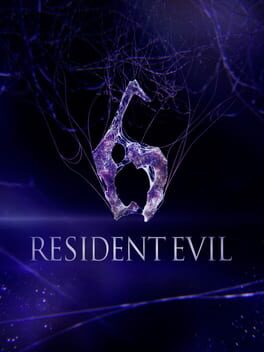

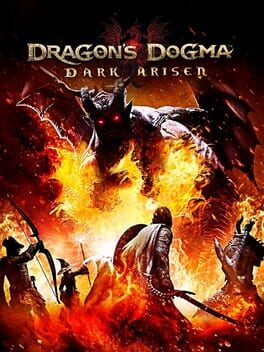

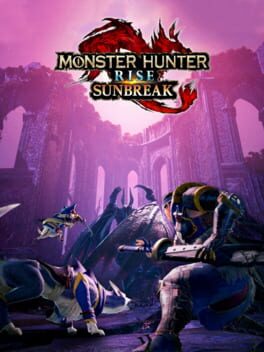
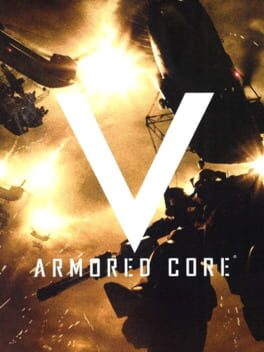
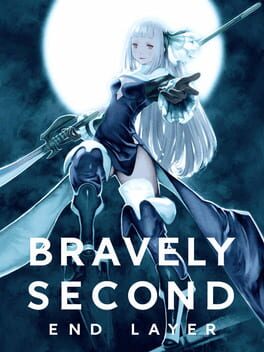
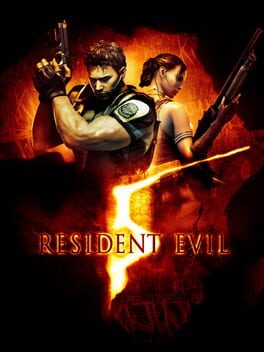
![NieR Re[in]carnation](https://images.igdb.com/igdb/image/upload/t_cover_big/co7bm4.jpg)
